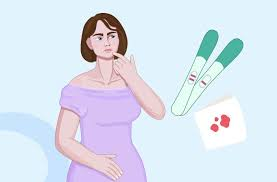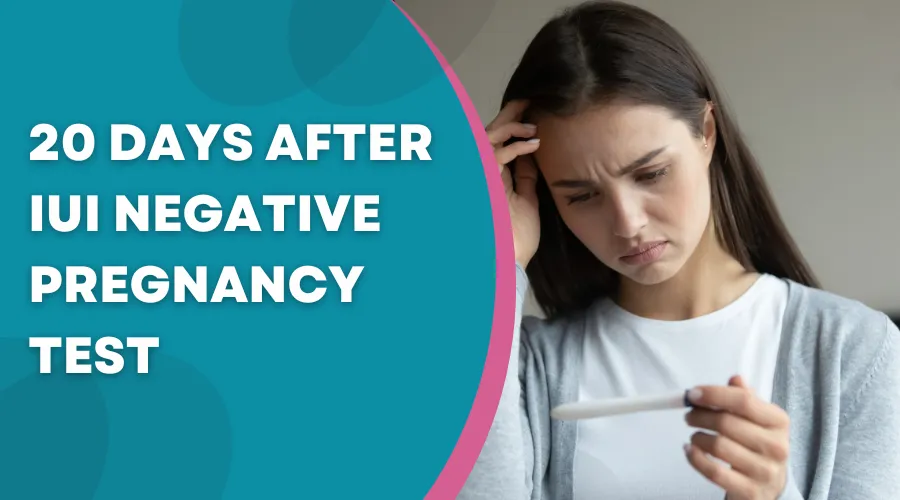The birth of a child is a cherished milestone in life, bringing immense joy and fulfillment. However, for some, the journey to parenthood is challenging due to infertility and other reproductive concerns. Many couples turn to fertility treatments like Intrauterine Insemination (IUI) to increase their chances of conception. The process is filled with hope, but the anxiety of waiting for results can be overwhelming.
Dr. Nisarg Patel, a renowned fertility specialist at Nisha IVF Centre, a state-of-the-art IVF facility in Ahmedabad, states:
“The inability to conceive can deeply impact emotional well-being, relationships, and one’s sense of completeness. Fertility treatments like IUI have transformed countless lives, providing a path to parenthood that was once thought impossible. While the waiting period can be stressful, understanding what to expect can ease concerns and promote a more positive mindset.”
A negative pregnancy test 20 days after IUI can be disheartening, raising questions and concerns. This blog will explore whether the test results are accurate, their possible reasons, and the next steps to consider.
Will a pregnancy test 20 days post-IUI provide accurate results?
Pregnancy tests detect the hormone hCG (human chorionic gonadotropin), which rises after implantation. By 20 days post-IUI, most pregnancy tests should provide accurate results. However, several factors, such as hormone levels and test sensitivity, can influence accuracy.
Dr. Nisarg Patel, an accomplished fertility doctor in Ahmedabad, explains:
“The best time to take a pregnancy test after IUI is usually 14 days post-procedure. By this time, hCG levels should be detectable if implantation has occurred. However, in some cases, delayed implantation or variations in hCG production may affect test outcomes, making follow-up testing or blood tests advisable.”

Is it common for a pregnancy test to be negative 20 days after IUI?
A negative test 20 days post-IUI is uncommon but not unheard of. In most cases, pregnancy would be detectable by this time. However, factors like late implantation, low hCG levels, or testing errors can lead to negative results.
Globally, studies suggest that around 10-15% of women who undergo IUI experience delayed hCG detection, leading to a false negative even after two weeks.
Causes of Negative pregnancy test 20 days after IUI
 Late Implantation: Sometimes, implantation occurs later than expected, delaying hCG production and resulting in a negative test.
Late Implantation: Sometimes, implantation occurs later than expected, delaying hCG production and resulting in a negative test.- Low hCG Levels: Some women produce lower levels of hCG, making it harder for standard pregnancy tests to detect pregnancy early.
- Testing Too Soon: Despite waiting 20 days, hormone levels may not be sufficient for detection if ovulation occurs later than anticipated.
- Diluted Urine: Testing with diluted urine, especially later in the day, can lower hCG concentration and lead to false negatives.
- Test Sensitivity: Some pregnancy tests require higher hCG levels to show positive results. Using a low-sensitivity test might result in a false negative.
- Chemical Pregnancy: An early miscarriage could cause a drop in hCG levels before testing, leading to a negative result despite initial conception.
Dr. Nisarg Patel, a skilled IVF doctor in Ahmedabad, adds:
“Several factors can contribute to negative test results, even if conception has occurred. If a patient experiences delayed periods or unusual symptoms, a blood test for hCG and an ultrasound can provide a clearer picture. It’s essential to rely on professional guidance rather than home tests alone.”
What should I do if I notice a negative pregnancy test 20 days after IUI?

- Confirm with a Blood Test: A blood test can detect even low levels of hCG and confirm pregnancy more accurately than home tests.
- Consult Your Fertility Specialist: Seeking expert advice can help understand the reasons for the negative test and discuss possible next steps.
- Monitor Symptoms: Keep track of any unusual symptoms like missed periods, cramps, or breast tenderness, as these may indicate pregnancy despite a negative test.
- Retest After a Few Days: If there’s still uncertainty, waiting a few more days before testing again may provide clarity.
- Prepare for the Next Steps: Whether it’s repeating the IUI cycle or considering alternative treatments, a specialist can guide the best course of action.
Final Thoughts
Dr. Nisarg Patel, an experienced fertility specialist in Ahmedabad, concludes:
“A negative test can be disheartening, but it does not define the journey to parenthood. Every couple’s path is unique, and success is still possible with the right support and medical guidance. At Nisha IVF Centre, our team provides unwavering support, helping you navigate the next steps with confidence and hope.”
FAQs
Can you test negative 20 days after IUI and still be pregnant?
No period after IUI but negative pregnancy test—what could be the reason?
How to cope with a negative pregnancy test 20 days after IUI?
Does stress impact IUI success rates?
When should I consider other fertility treatments after IUI failure?
Reference Links:
https://www.mayoclinic.org/tests-procedures/intrauterine-insemination/about/pac-20384722
https://my.clevelandclinic.org/health/diseases/22188-chemical-pregnancy
Disclaimer: The information shared in this content is for educational purposes only and not for promotional use.


